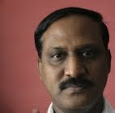Voting rights for all, no mean achievement Raja Sekhar Vundru
http://www.thehindubusinessline.com/opinion/article3415438.ece
Voting rights for all, no mean achievement
Voting rights for all, no mean achievement
-

-
 Sixty years after the first sitting of Parliament, we owe a lot to Dr Ambedkar.
Sixty years after the first sitting of Parliament, we owe a lot to Dr Ambedkar.
On Sunday, the nation marked the 60th anniversary of the first sitting of its Parliament on May 13, 1952.
This is the time to remember the vision of its founding fathers, for
whom democracy — unlike for those today who rarely vote, but get all the
air time to denigrate the institution of Parliament and elected
people's representatives — was an act of faith.
Moreover, they were clear that democracy meant universal adult suffrage
and direct elections not just at the village or district Panchayat, but
the highest levels of government. And the electorate had to include
everyone, irrespective of community, class or educational attainment. To
have projected that vision then — for a country of largely illiterate
villagers — was nothing short of revolutionary.
STRUGGLE ALL THE WAY
On 23 October, 1928, when even the most advanced Western nations were
still struggling with the idea, Dr. B.R. Ambedkar, appearing before the
Indian Statutory Commission (which came to be better known as Simon
Commission), said he would like universal adult franchise for elections
to be incorporated in the future Constitution of India.
The right to vote, at that time, was granted only to the rich, the
landed and the tax payers. Dr Ambedkar, however, envisioned that
elections were a weapon in the hands of the most oppressed sections of
society for demanding politico-legal equality for the oppressed. Thus,
while demanding reserved seats for Scheduled Castes — then referred to
as Untouchables — he insisted upon franchise for criminal and hills
tribes also.
What is more, he opposed the nomination of certain classes into
legislative assemblies, which included the Untouchables too, as was the
norm of that period.
In his strong defence of universal adult franchise, Dr Ambedkar laid to
rest the argument of illiteracy: “My feeling is that every man is
intelligent enough to understand exactly what he wants. Literacy has not
much bearing on this point; a man may be illiterate, none the less he
may be very intelligent.”
The deliberations later involved the Indian National Congress, which was
represented at the Round Table Conferences in the early 1930s by
Mahatma Gandhi. Dr Ambedkar, on his part, failed to convince the British
to delimit the franchise.
In the subsequent decade, while piloting the new Constitution in the
Constituent Assembly, Dr Ambedkar once again catapulted his vision of
universal adult franchise. But this time too, even without the British
being in the picture, there was no easy sailing for the idea. It was
found so radical that Sardar Vallabhai Patel, who headed the Assembly's
Advisory Committee on Fundamental Rights, expressed apprehensions that
the States may not agree to it and would even view it encroaching upon
their rights.
NEHRU'S SUPPORT
Dr. Ambedkar, however, steadfastly stuck to his position of the right to
vote being a fundamental right. In his words, “franchise is principal
thing of the Constitution” and, thereby, the essence of democracy. He
also warned that the Assembly members, in their anxiousness to somehow
bring States on board, should not compromise on basic principles such as
universal adult franchise.
It all culminated in the Indian voters — irrespective of their literacy,
caste and religious status, whether man or woman, landed or landless
labourer, and tax payer or pauper — queuing up to cast their paper
ballot (sometimes two or three ballots in multi-member constituencies)
in the long drawn elections in 1951-52 to the Parliament and State
Assemblies.
The country's highest Panchayat or the House of People — later
rechristened the Lok Sabha on May 14, 1954 — met for the first time on
May 13, 1952. Over the next 60 years, the House has been constituted 15
times, with its members being directly elected by the people of India.
Over time, the composition of the members has also changed to more or
less reflect the proportions of their communities in the total
population. That includes those belonging to the erstwhile Untouchables
and most backward sections of society.
The credit for all this goes to the founding fathers of Indian
Democracy, foremost of them being Dr Ambedkar and Jawaharlal Nehru. The
latter, like Dr Ambedkar, was a true modernist who subscribed to the
broad principles of liberal Western democracy. But Nehru did not
participate in any of the Round Table Conferences, which went into every
detail of constitution making. Nor was he a part of the Poona Pact
negotiations in 1932 to consider special representation for the
Untouchables.
The fundamentals of democratic principles such as adult franchise and
reservation for the Scheduled Castes/Tribes in political representation
were fine tuned to the Indian social reality and conditions ultimately
only by Dr Ambedkar.
At the end of sixty years, what one needs is a re-commitment to the
principles of democracy, fair play and representation to the most
deprived sections of Indian society enshrined in our Constitution; this
is to be safeguarded by the highest body representing its people: The
Parliament.
(The author is an IAS officer. Views expressed are personal.)
(This article was published on May 13, 2012)


